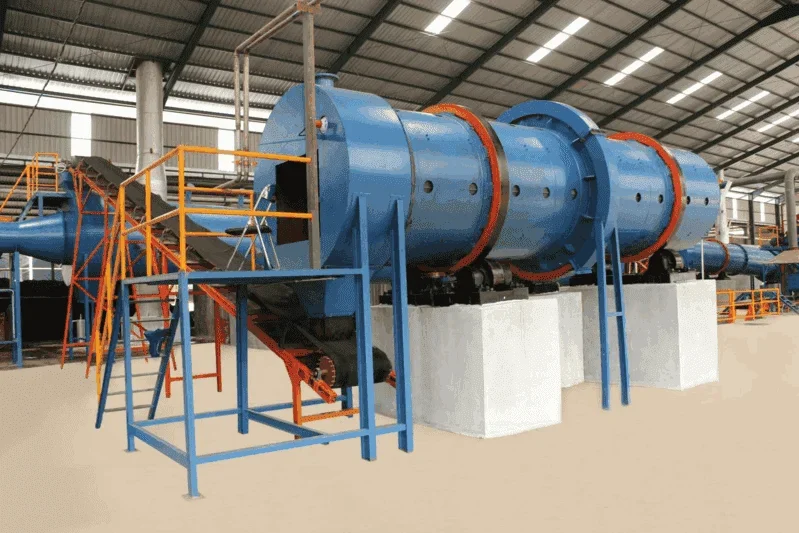Contents
Introduction
In the realm of agriculture and soil enhancement, the production of quality fertilizers plays a pivotal role in ensuring optimal plant growth and soil health. Two significant components in this domain are bentonite granules and NPK (Nitrogen, Phosphorus, Potassium) compound fertilizers. The efficient production of these fertilizers hinges on advanced machinery that ensures uniformity, quality, and scalability. This article delves into the intricacies of bentonite bentonite granules making machine and npk compound fertilizer granulation production line, highlighting their features, advantages, and considerations for prospective buyers.
Bentonite Granules Making Machines
What Are Bentonite Granules?
Bentonite is a naturally occurring clay mineral with high absorbent properties. When processed into granules, it serves various applications, including:
- Cat Litter Production: Its absorbent nature makes it ideal for clumping cat litter.
- Soil Amendment: Enhances water retention and nutrient exchange in soils.
- Fertilizer Additive: Acts as a carrier for nutrients in granular fertilizers.
Types of Bentonite Granulation Machines
- Double Roller Extrusion Granulator: Employs a dry granulation method, suitable for materials with low moisture content (5-10%). This machine compresses bentonite powder into granules without the need for binders or additional moisture. Fertilizer Granulator Manufacturer
- Disc Granulator: Utilizes a rotating disc to agglomerate fine particles into spherical granules. It’s ideal for producing uniform granules with a size range of 3-6 mm. Granulator for Fertilizer
- Rotary Drum Granulator: A high-capacity machine that uses a rotating drum to form granules. It’s suitable for large-scale production and can handle materials with higher moisture content.
Key Features
- Capacity: Machines can produce between 1 to 42 tons per hour, catering to both small and large-scale operations. Pellet Machine/Pellet Mill/Feed Extruder
- Energy Efficiency: Modern machines are designed to minimize energy consumption while maximizing output.
- Durability: Constructed with high-quality materials to ensure longevity and reduce maintenance costs.
- Customization: Options for different granule sizes and production capacities to meet specific requirements.
NPK Compound Fertilizer Granulation Production Lines
What Is NPK Fertilizer?
NPK fertilizers are synthetic fertilizers containing three primary nutrients essential for plant growth:
- Nitrogen (N): Promotes leafy growth.
- Phosphorus (P): Encourages root development and flowering.
- Potassium (K): Enhances disease resistance and overall plant health.
Granulation Methods
- Dry Granulation: Involves compressing the raw materials into granules without the use of liquid binders. Suitable for materials sensitive to moisture.
- Wet Granulation: Utilizes water or steam to agglomerate the raw materials into granules. This method is effective for producing uniform granules with controlled sizes.
Production Line Components
- Raw Material Preparation: Involves crushing and grinding raw materials to the desired particle size.
- Batching and Mixing: Accurate measurement and thorough mixing of raw materials to ensure uniform nutrient distribution.
- Granulation: The core process where mixed materials are transformed into granules using granulators.
- Drying and Cooling: Reduces moisture content and cools the granules to prevent caking.
- Screening and Coating: Ensures uniform size and applies coatings to improve granule quality.
- Packaging: Final step where granules are packaged for distribution.
Advantages of NPK Production Lines
- Efficiency: Automated processes reduce labor costs and increase production speed.
- Consistency: Ensures uniform granule size and nutrient content.
- Scalability: Production lines can be scaled to meet growing demand.
- Customization: Ability to produce fertilizers with specific nutrient ratios tailored to different crops.
Considerations for Purchasing
When investing in bentonite granules making machines or NPK compound fertilizer granulation production lines, consider the following:
- Production Capacity: Assess your current and future production needs to select equipment that meets your requirements.
- Space Requirements: Ensure adequate space for installation and operation of the machinery.
- Budget: Evaluate the total cost of ownership, including purchase price, installation, and maintenance.
- Supplier Reputation: Choose reputable manufacturers with a track record of producing reliable and efficient equipment.
- Technical Support: Opt for suppliers that offer comprehensive after-sales support and training.
Conclusion
The production of bentonite granules and NPK compound fertilizers is integral to modern agriculture. Investing in advanced machinery ensures efficient production processes, consistent product quality, and scalability to meet market demands. By carefully selecting the appropriate equipment and considering the factors outlined above, producers can enhance their operational efficiency and contribute to sustainable agricultural practices.
If you require further information or assistance in selecting the right machinery for your needs, feel free to reach out to reputable suppliers and manufacturers in the industry.


